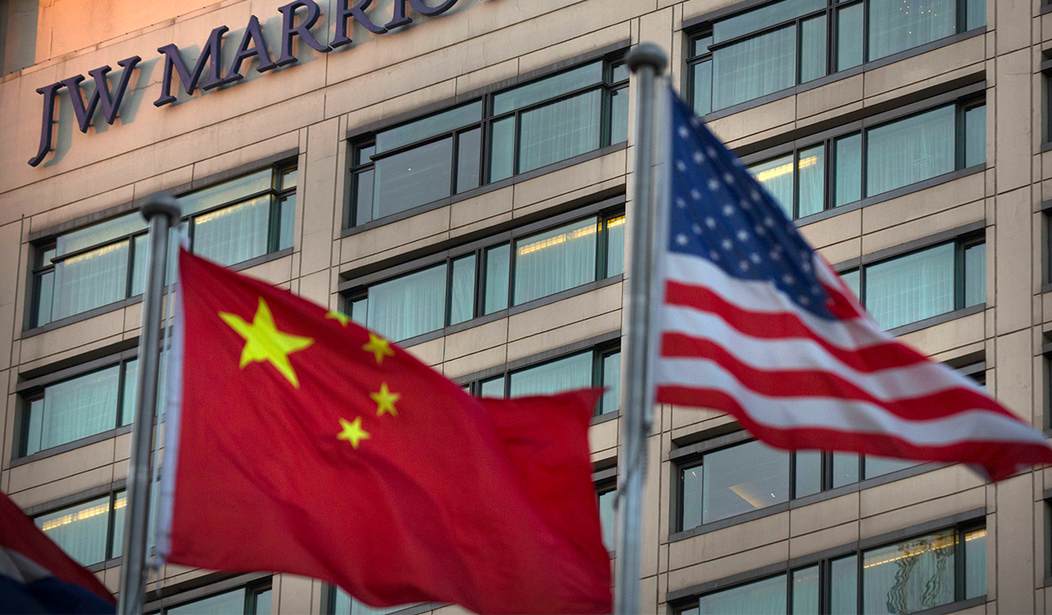America’s state and local governments should be wary of who they invite to invest in their communities. China has proven over and over that its investments come with strings attached.
The line between Chinese business investment and Chinese government interference is murky. Communist China keeps a much heavier thumb on its citizens and businesses than the United States—and can compel its companies that do business in America to share customers’ personal data.
By law, China requires its companies to divulge information deemed necessary for national security. And in China, national security means whatever the Chinese Communist Party wants it to mean. This is one of the major reasons the Trump Administration has barred tech giant Huawei from doing business in the United States, and why the United Kingdom also agreed to cut ties. Experts say that if Beijing were to ever ask Huawei for data, the company would have no recourse to refuse.
According to the ChineseCounter-Espionage law, when the State Security organ conducts an investigation, organizations and individuals are compelled to assist. The law states that individuals must “truthfully provide” information and “must not refuse.” China’s State Security Law also forces organizations and individuals to provide help to State Security agencies during investigations. Companies operating on foreign soil are not exempt, though the law does say organizations “cannot violate the laws of other countries.”
The Chinese Communist Party’s sweeping authority to collect data from private Chinese companies threatens our national security and the privacy of American citizens. When it comes to investment, we should look to nations that have earned our trust—and China is not one of them.
Recommended
In recent months, the CCP released a draft Data Security Law that would tighten and centralize state control over data. Some of the new industries covered are telecommunications, energy, transportation, information services, and finance.
The law subjects Chinese companies to fines if they share any data that harms the rights of China’s citizens, organizations, or public interest. It gives the CCP grounds for penalizing businesses that use data in a way the CCP does not like. And it requires companies to provide “technical support” to authorities for national security and criminal investigations.
What we already know about China’s data harvesting is alarming. In September, a leaked database revealed the Chinese company Zhenhua Data collected data on 2.4 million people, and at least 20% of that data came from sources not in the public domain. The database contained profiles for 52,000 Americans, ranging from dates of birth and marital status, to criminal records and political associations. The data appears to have been given to Chinese intelligence and the military ,reportsForbes.
Considering that China has attempted to set global standards for data security, urging all countries to oppose “mass surveillance against other states,” this is pretty hypocritical.
It’s clear that all Americans should be concerned about the amount of information China can access. Chinese-owned apps like TikTok and WeChat have the ability to collect massive amounts of data on users, everything from location, consumer habits, and financial information to photos, and contacts. Data sets like this in the hands of an adversarial government are a threat to our national security.
China is now a world leader in artificial intelligence and quantum computing. The CCP’s stated goal for all research and development is dual military and civilian use. There is no question that China will use these new technologies to mine and analyze data. There is also no question that the CCP will exploit whatever information they uncover to their own benefit and to the detriment of the United States.
Allowing Chinese companies that are required by law to report back to the CCP into our communities opens the door to influence and manipulation from Beijing. Local leaders should think twice about our national security and the privacy of American citizens before inviting the CCP into our backyards.
Rep. Mark Green is a combat veteran who served in Afghanistan and Iraq. He was part of the mission to capture Saddam Hussein, and he interviewed Saddam Hussein for six hours on the night of his capture. He serves on the House Foreign Affairs, Homeland Security, and Oversight Committees.

























Join the conversation as a VIP Member